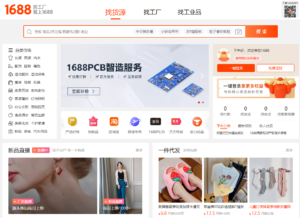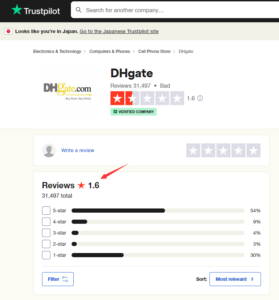xlsx_Sheet1-scaled.jpg)
xlsx_Sheet2-scaled.jpg)
Understanding Incoterms: Simplifying International Trade
In the complex landscape of international trade, clarity and precision are paramount to ensuring smooth transactions between parties across different countries and jurisdictions. At the heart of this clarity lie the International Commercial Terms, commonly known as Incoterms. These internationally recognized terms, established by the International Chamber of Commerce (ICC), provide a standardized framework for defining the rights and obligations of buyers and sellers in the global marketplace.
From the bustling ports of Shenzhen to the warehouses of New York City, Incoterms serve as the guiding principles that govern the transfer of goods, allocation of costs, and distribution of risks in international transactions. Understanding these terms is not just a matter of convenience; it is a fundamental necessity for businesses engaging in cross-border trade. In this article, we delve into the intricacies of Incoterms, exploring each term’s nuances, responsibilities, and implications on international commerce.
What are Incoterms?
Incoterms, short for International Commercial Terms, are a set of standardized rules that define the responsibilities and obligations of buyers and sellers in international trade transactions. They provide a common language and framework for negotiating contracts, determining the allocation of costs and risks, and specifying the delivery terms for goods.
Incoterms were first introduced by the International Chamber of Commerce (ICC) in 1936 and have been regularly updated to reflect the changing landscape of international trade. The most recent update, Incoterms 2020, came into effect on January 1, 2020.
The Importance of Incoterms
Understanding and using Incoterms correctly is crucial in international trade for several reasons:
- Clarity: Incoterms provide clear and unambiguous terms for the buyer and seller, ensuring that both parties have a common understanding of their rights and obligations.
- Cost Allocation: Incoterms specify which party is responsible for various costs, such as transportation, insurance, and customs duties. This helps prevent misunderstandings and disputes.
- Risk Management: Incoterms define the point at which risk transfers from the seller to the buyer. This is important for determining who bears the risk of loss or damage to the goods during transit.
- Legal Compliance: Incoterms are recognized worldwide and can help ensure compliance with international trade regulations and customs requirements.
Commonly Used Incoterms(most important)
While there are 11 Incoterms in total, some are more commonly used than others. Here are a few examples:
- EXW (Ex Works): The seller makes the goods available at their premises, and the buyer is responsible for all transportation and export-related costs.
- FOB (Free On Board): The seller is responsible for delivering the goods to the port of shipment and loading them onto the vessel. The buyer assumes responsibility once the goods are on board.
- CIF (Cost, Insurance, and Freight): The seller is responsible for delivering the goods to the port of destination and covering the cost of insurance and freight. The buyer takes over once the goods are on board.
- DDP (Delivered Duty Paid): The seller is responsible for delivering the goods to the buyer’s premises, paying all costs, including import duties and taxes.
Choosing the Right Incoterm
When choosing an Incoterm, it’s essential to consider factors such as the nature of the goods, the transportation method, and the level of control and risk you are willing to assume. Each Incoterm has its own advantages and disadvantages, so it’s crucial to select the one that best suits your needs and objectives.
It’s also important to communicate clearly with your trading partner and ensure that both parties have a mutual understanding of the chosen Incoterm and its implications. This can help prevent misunderstandings and minimize the risk of disputes.
Common Mistakes to Avoid
While Incoterms provide a valuable framework for international trade, there are some common mistakes that traders should avoid:
- Assuming Universal Application: Incoterms are not automatically included in contracts and must be explicitly mentioned. Failure to specify an Incoterm can lead to confusion and disputes.
- Ignoring Local Regulations: It’s important to consider local customs regulations and requirements when choosing an Incoterm. Failure to do so can result in delays, penalties, or even the seizure of goods.
- Not Reviewing Incoterms Regularly: Incoterms are periodically updated by the ICC to reflect changes in international trade practices. It’s crucial to stay updated with the latest version to ensure compliance and avoid potential issues.
- Overlooking Insurance Coverage: Depending on the chosen Incoterm, the responsibility for insurance may lie with either the buyer or the seller. It’s essential to clarify this aspect to avoid gaps in coverage.
Conclusion
In conclusion, navigating the complex terrain of international trade requires a solid understanding of the International Commercial Terms. Whether you’re a seasoned importer in Tokyo or an exporter in Berlin, the importance of selecting the appropriate Incoterm cannot be overstated. By adhering to these standardized terms, businesses can mitigate risks, streamline logistics, and foster trust and transparency in their global transactions.
As we look to the future of international trade, one thing remains clear: Incoterms will continue to serve as the cornerstone of cross-border commerce, facilitating seamless transactions and fostering economic prosperity across continents. Therefore, investing time and resources into mastering these terms is not just a prudent choice but an essential step towards success in the dynamic world of global trade.
Before arranging your procurement of Chinese products, ensure you’re partnering with a trustworthy China sourcing agent, such as MOOFSOURCING. We provide a one-stop solution for small to medium wholesale clients through our sourcing services. Our procurement offerings provide peace of mind, saving you both time and money. Contact us at info@moofsourcing.com immediately to learn more.



